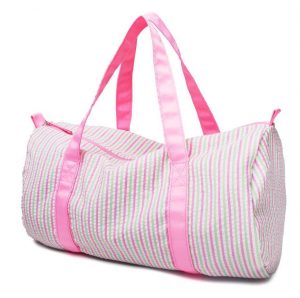The other day, we were chatting, in the usual Treeehouse way, about one of our favourite topics. The question we asked each other was not “Which books do you like?” but “Why do you like this book in particular?” We were talking about elements of a book where the author had put the finger on something so precisely that that author and that trait give us pleasure, even years after we first read it. We decided that when one of us remembers something about a favourite book, we might write about it here. We all need comfort right now, after all, and comfort reading is right up there with chocolate as something worth sharing. I’ve eaten some excellent chocolate today and I have a cup of tea at my right hand.
The book I want to share is one that’s really not very well known these days. I’m not sure it was even published outside Australia. It’s by Ray Harris The Adventures of Turkey. Boy of the Australian Plains. I have the 1960 edition, but didn’t read it until some years later. My school library had an earlier edition. I learned about space travel in that library and dreamed of becoming a science fiction writer. I learned about history in that library and dreamed of having history as part of my life. I watched the moon landing in that library, in 1969, when I was eight, and I read The Adventures of Turkey in that library.
Turkey was a schoolboy who lived outback, in an Australia I thought I visited on holidays. When I was a teenager, I was on a school exchange programme and discovered that almost everything in the novel either never existed or was in the past. Mostly in the past. I spent a lot of my early history quests trying to find out about Turkey and his life.
What is it in this book that still grips me? It’s a perfectly created world. It’s what most fantasy novels dream of being, but it chronicles the apparent everyday of school children from way out Woop Woop or from back of Burke. This is an Australian fantasy place, where the climate is tough and the people tougher, and where snakes are dealt with calmly and the real hero is a lanky boy who looks like a bush turkey.
The conversation us Treehousers (I’m now stuck in Australian English, sorry) had, was about writing techniques.
What writing techniques did Harris use that makes me dream about this non-existent Australia every time I read the book? (Do not ask how often I’ve read the book: I’ve owned this copy for about 45 years. We are talking about ultimate comfort reading.) This is not about what the book gets wrong. It’s about what it gets right.
One of my favourite openings of novels is in Susan Cooper’s The Dark is Rising. In the first paragraph we learn so much about a family that everything that happens to Will Stanton happens in that family context. The events are more startling because we know his family, intimately, from Will’s reaction to them in that first paragraph.
Ray Harris uses a similar technique.
“Turkey, me toe’s sore!”
Without speaking, the lanky fourteen year-old slid his school bag in front of him and took his small stepsister pick-a-back. He carried her easily enough. She put her perspiring cheek against his not neck, pushing his hat on one side. He made no protest.
It’s at once very Australian and very simple.
Everything in the novel is Australian and simple. We were just getting used to the idea that we could use our own dialect for protagonists in the 1950s and 1960s, so Harris used a voice even in that opening paragraph and that voice is what comforts me.
It’s my father’s voice.
Dad was brought up in country towns. I’m very much a big city person and I’ve never spoken the way Turkey does. I use a bit of dialect (‘Strine’ is its official name) now and again, to tease people, but I actually had to learn it from others as a child. The Adventures of Turkey was one of those others. It helped me to understand my father’s jokes. It helped me to see that there was an Australia outside my suburb and that I wanted to find out more about that Australia. It did all this by presenting the often-humorous life of Turkey, one day at a time.
While as a school story Turkey was new to me, the humour wasn’t. My father’s jokes are in it, and the entire novel lovingly embraces the narrative style of CJ Dennis (The Sentimental Bloke is another story I visit and revisit when I need comfort – it’s an Australian retelling of Romeo and Juliet) with hints (mere hints) of the adventures of Bunyip Bluegum (Norman Lindsay’s The Magic Pudding) and the short stories of Steele Rudd about Dad and Dave.
If you find the common elements in all of these, you will see what gives me comfort in The Adventures of Turkey. Whimsy walks alongside stern practicality. There’s an acceptance that even simple prose can be used to share the reality that ordinary life is tough but still worthwhile.
All of this was communicated through a writing style that supported resigned humour. The comfort comes from Strine itself, in a way. When I first discovered it, I was reading British school stories and dance books and horse books and I was reading about Anne Shirley and Laura Ingalls Wilder. I was reading science fiction and fantasy and anything that contained history. None of them gave the firm foundation that Turkey did.
It’s the sense that the everyday can be story, I think. Even if it’s an everyday that is so unlike my own that it felt ultra-real.
That opening says it all. Susan Cooper’s opening said that the everyday can be turned upside down and inside out. Harris said that the everyday didn’t have to be turned upside down and inside out to make good story. This is the comfort.

 When I was a kid we went from our home in New York City to our work-in-progress barn in Massachusetts virtually every weekend. Among other things, this meant that my brother and I got very good at packing. My father had a system for packing, which meant we had packing lessons and were supervised by my father until he was certain that we could be trusted to follow the protocol. All clothes were to be folded and then rolled into neat tubes which could then be stacked in our brightly colored duffels (mine pink, my brother’s, blue). This allowed one to pack an extraordinary amount of stuff–far more than one generally needed for a two-day weekend.
When I was a kid we went from our home in New York City to our work-in-progress barn in Massachusetts virtually every weekend. Among other things, this meant that my brother and I got very good at packing. My father had a system for packing, which meant we had packing lessons and were supervised by my father until he was certain that we could be trusted to follow the protocol. All clothes were to be folded and then rolled into neat tubes which could then be stacked in our brightly colored duffels (mine pink, my brother’s, blue). This allowed one to pack an extraordinary amount of stuff–far more than one generally needed for a two-day weekend.
 [I wrote this a few years back and published it on another blog. It’s still relevant.]
[I wrote this a few years back and published it on another blog. It’s still relevant.]